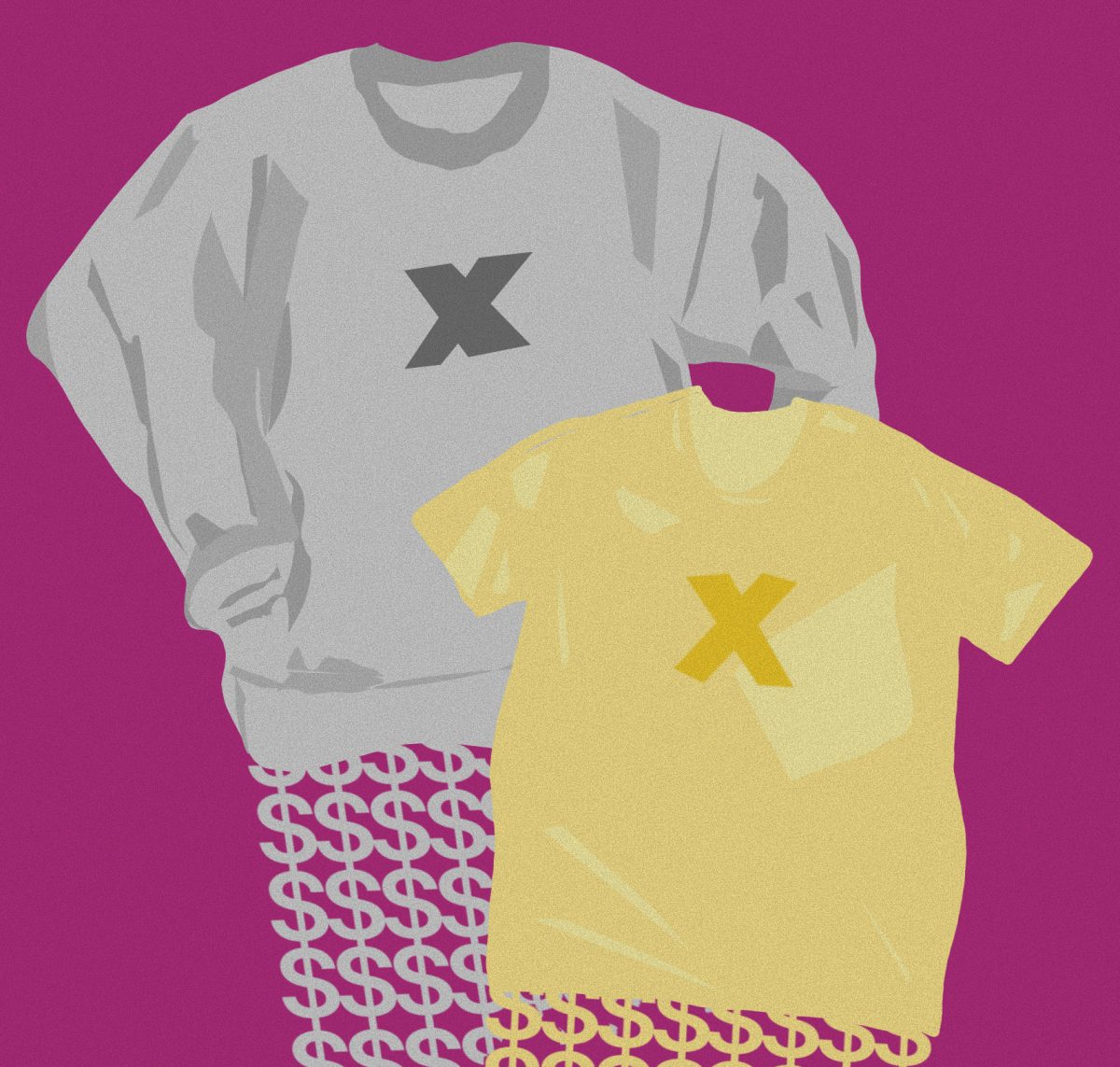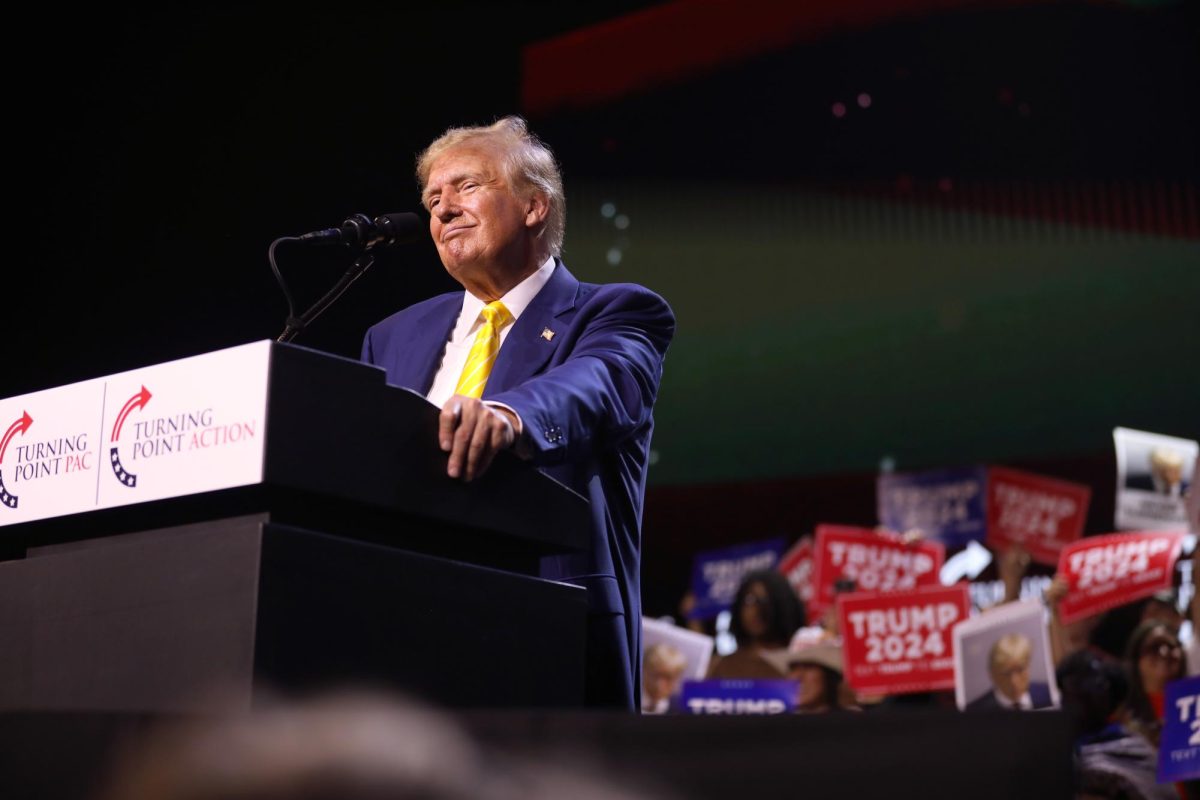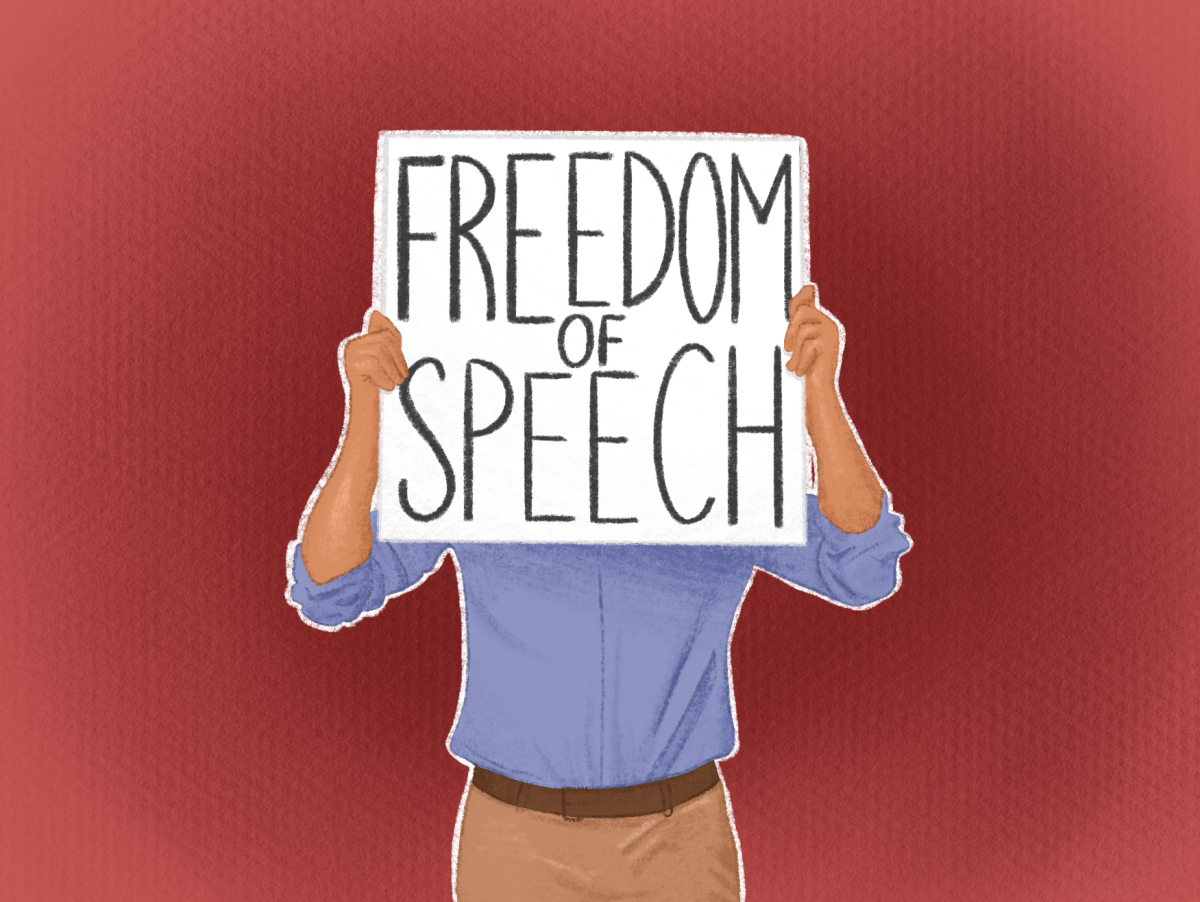Big names love to market themselves. For decades, merchandise has been a popular way of showing random strangers, “Hey! I am a fan of the people who designed what I’m wearing!” From cardigans to sweatshirts to mugs and photo coasters. Even Pizza Hut tried to get on the trend in 2021 with its release of “Pizza Hut Tastewear,” and Shrek has his own makeup line. With the advent of these exclusive collectibles, our growing urge to acquire a celebrity’s latest products seems like it will only ever increase, with these articles making us walking advertisements for our favorite musicians, YouTubers and actors.
These famous individuals have not tried to hide that they want their fans to adorn their merch –– many have tried to entice fans by marketing their products as available for a limited time (even when it’s not) –– constantly promoting merch whenever possible such as at the end of YouTube videos and, of course, popularizing it through social media.
With merch seemingly shoved in our faces the instant we decide to commit ourselves to a fanbase, and despite their outrageous prices ($64.89 for a crewneck? Really, Taylor?), we feel like we have to buy some to justify our loyalty. Even if the merch admittedly sucks.
It’s important to recognize when some celebrities’ marketing tactics are too unreasonable. For instance, Olivia Rodrigo released four supplementary songs on her album, “Guts,” across four variations of vinyl. She has a purple vinyl with a track called “Girl I’ve Always Been,” black and red editions with a song called “Obsessed,” a white one with a track called “Scared of My Guitar” and a blue one with a song entitled “Stranger.” Hence, if fans want to listen to the complete collection of Rodrigo’s sophomore album, they would have to purchase four vinyl variants in total, and the cost of each can amass into an unsettling amount –– potentially around $120.
Similarly, even though I am an ardent fan of Taylor Swift, I concede her marketing tactics reveal an unethical capitalistic side to her. For instance, it seemed a bit disingenuous that she released eight physical variations of her latest album “1989 (Taylor’s Version),” with only one containing the exclusive bonus track “Sweeter Than Fiction.” She also pressured fans to buy all four vinyl variations by advertising their distinct album gatefold jackets, back and cover art, collectible album sleeves and exclusive photos.
Furthermore, she prodded her fans into pre-ordering physical copies of CDs for “1989 (Taylor’s Version)” by stating they were available for only 48 hours, only to make them all back in stock months later. She also released not only a deluxe version of the album with a remix of her hit “Bad Blood” featuring Kendrick Lamar, but another deluxe version containing the “Bad Blood” remix and an acoustic remix of her track “Slut!”
Don’t fall prey to these celebrities’ shady promotion methods. Purchase them if you genuinely want them, but do not do so out of obligation. From a logical standpoint, it is unreasonable for anybody, no matter how famous, to expect people to buy everything they have to offer, and you should not feel pressured to buy something from someone who does not know you personally.
Some of the merch is not even worth buying. Users on Reddit have expressed disdain over Ed Sheeran’s poor tour merch, some claiming his “Life Goes On” shirt is “super thin” and the merch from his concerts is getting “worse and worse.” Swift is notorious even among her most devoted fans for having merch with low-quality designs. Worse, her merch tends to come at outrageous prices too.
Alternatively, you can go on Etsy to purchase higher-quality merch for more affordable prices. The United States already had the largest apparel market in 2022, reaching a revenue of $1.5 trillion. This figure is projected to surge by nearly $2 trillion in 2027, an increase of over 100%. Psychological marketing strategies, zealous loyalty and the rising popularity of casual clothing in the last few centuries help to explain this phenomenon, but we should not let that trend deter us from committing to a more frugal approach with our celebrity obsessions.
I also know a lot of people feel pressured to buy merchandise because they see so many others around them doing so too. Not purchasing your favorite celebrity’s products makes you feel like a “fake fan” since you have nothing to physically corroborate your devotion to them. However, this leads into a trap where fans buy someone’s merch fully knowing they won’t ever complete the collection, buy more merch as a result, reprimand themselves for spending more money on merch and struggle to ignore the same disquieting “FOMO” inner voice telling them that the merch they have is not enough.
Overall, remember that the least you can do to prove your love for a celebrity is just support them, even if just in your head. Even though I do not own any Taylor merch, I have been listening to her albums constantly due to her recent rise in popularity, and even though it seems like I bashed it, I absolutely love “1989 (Taylor’s Version)” (if you’re curious, my favorite track is “Blank Space” while my current favorite vault track is “Say Don’t Go”).
In the end, our favorite celebrities do not even know who we are and whether we are spending money on them. We don’t need to keep encouraging them to impose unfair capitalistic practices on poor but adoring fans, not just us, but also the families with children who throw tantrums to push their parents to purchase products of their favorite names out of guilt. Life is too short to toss away your money on ugly clothes and a plethora of variants: Money is transitory, but your internal connection to your celebrities can remain eternal.
Jethro R. Lee is a third-year data science and psychology combined major. He can be reached at lee.jet@northeastern.edu.

















